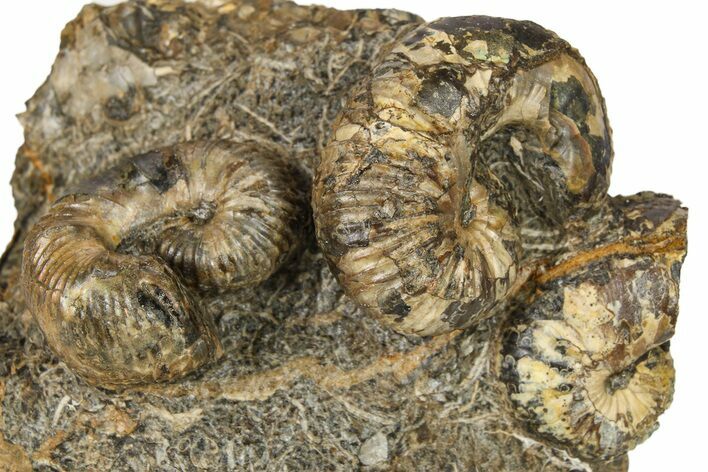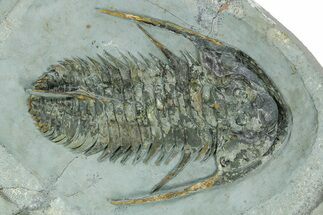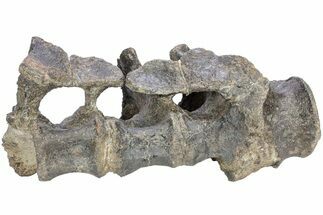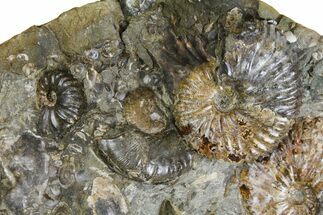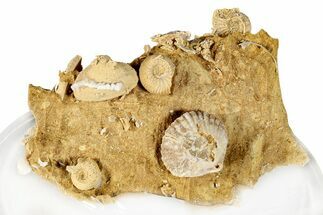Three Cretaceous Fossil Heteromorph (Scaphites) Ammonites - Utah
This is a really cool multiple heteromorph ammonite (Scaphites) specimens collected from the Dragon Valley Mine in Emery County, Utah. Unlike most ammonites that lived in a tightly-coiled spiral shell that retains the shape throughout the cephalopod's life, heteromorph ammonites have irregularly-coiled or uncoiled shells. These heteromorph ammonites are from a Late Cretaceous-aged deposit. They are similar to the species Scaphites whitfieldi but based on a conversation with ammonite expert Neal Larson, they probably represent a new, undescribed species.
The ammonites have been painstakingly exposed from the hard mudstone surrounding them. The rock also contains a variety of shell fragments. Comes with an acrylic display stand.
The ammonites have been painstakingly exposed from the hard mudstone surrounding them. The rock also contains a variety of shell fragments. Comes with an acrylic display stand.
Ammonites were predatory cephalopod mollusks that resembled squids with spiral shells. They are more closely related to living octopuses, though their shells resemble that of nautilus species. True ammonites appeared in the fossil record about 240 million years ago during the Triassic Period. The last lineages disappeared 65 million years ago at the end of the Cretaceous.
SPECIES
Scaphites cf. whitfieldi
AGE
LOCATION
Dragon Valley Mine, Emery County, Utah
SIZE
Largest Ammonite: 1.1" wide, Rock: 2.8 x 2.6"
CATEGORY
ITEM
#266735
We guarantee the authenticity of all of our
specimens. Read more about our
Authenticity Guarantee.
specimens. Read more about our
Authenticity Guarantee.
 Reviews
Reviews

